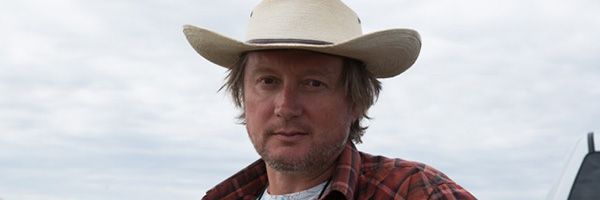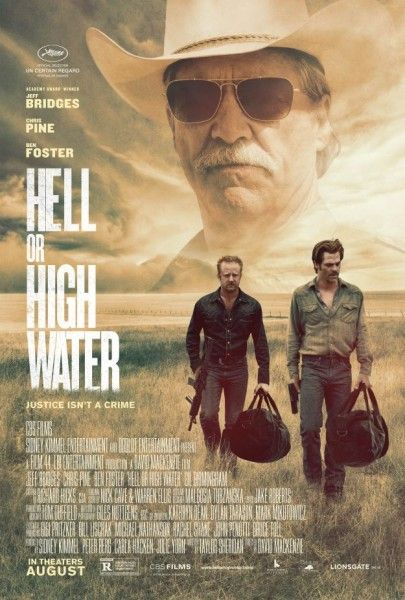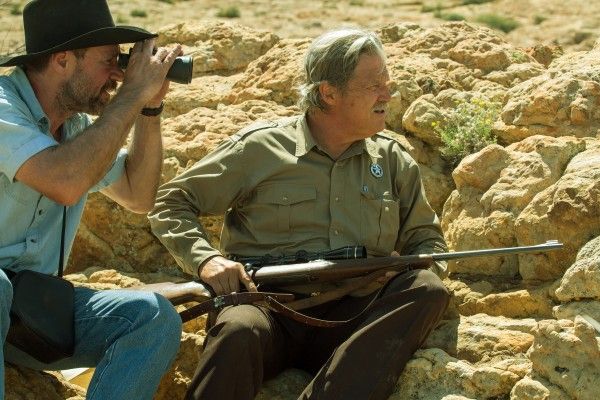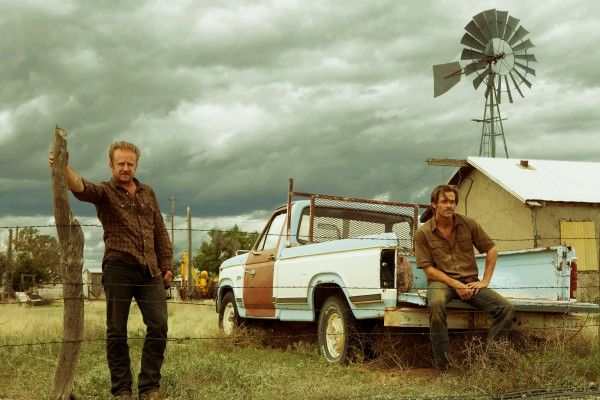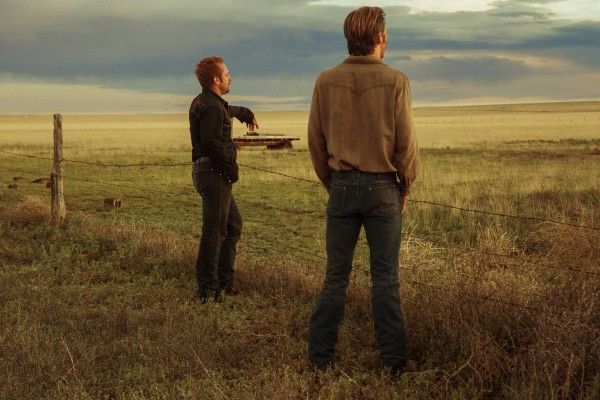Throughout David Mackenzie’s career, he’s shown a knack for effortlessly merging different genres together: Young Adam – a tragic love story, a mystery and an erotic thriller; Perfect Sense – an end-of-the-world science fiction romance; Hallam Foe – a voyeuristic whimsical comic-tragedy… But in talking with the filmmaker, he stressed that he’s always been uncomfortable with genre labels, this merging more an attempt to push his films out of any preconceived boxes.
His latest film, Hell or High Water, on the surface, may appear to be his simplest yet: a cops-and-outlaws western; but just underneath, the film ably touches upon much of the political and economic strife currently fueling today’s current events. Mackenzie, by embracing the confines of a singular genre, has made his most timely and prescient film yet – a film that twists the conventions of the ‘Western’ into a commentary on ‘the 99% versus 1%’.
In the following interview with filmmaker David Mackenzie, he discusses shooting Hell or High Water sequentially, researching West Texas culture and his approach to working with actors.
Starting from the beginning -- how did you first get involved with Hell or High Water?
Well -- I read Taylor's script. It was love at first sight. I had a very immediate reaction upon reading it.
What are you looking for in a script?
Something special, something original… Something that raises it above the norm – a journey which takes you to a place you're not expecting and moves in ways that are interesting and surprising every step of the way. [Hell or High Water] had this gritty bank robbery stuff and then the warmth of the characters and then the poetic space of the Midwest and the issues. The movie feels like it's about a big subject and then it’s a bank robbery movie and now it's a film about the heart of the west. I just loved that journey and I worked very hard to work with the material to bring it to life in the best way I could.
What do you feel the movie says about the West and Texas culture now?
It feels to me that it shines a light... I'm an outsider from Scotland. I've spent a little bit of time in the West before but I feel like [the movie’s] a little snapshot of a nation... I'm an outsider so it's really up to everyone else to really get what they want from it…
What is the research process for you as an outsider into this particular culture?
The last film I did was a prison movie and the writer of that movie knew that world very well. It was very obvious when I read the script that Taylor [Sheridan] knows this world -- so a huge conduit in terms of researching is a connection with the writer's screenplay. I spent a lot of time with Taylor talking through that and getting to understand it more and we then embraced trying to find the locations, trying to get into the spirit. We had a very short time frame to do so - it was on the run. It's just about getting as much advise as possible and most of what I do is about being intuitive and feeling it on the day. That's always the most exciting part of the filmmaking process. It's always about what's happening when the cameras are running. Everything else is just preparation.
So there isn't much storyboarding ahead of time for you?
I'll storyboard stunt scenes -- so the stunt people know what they're doing but very early on in my filmmaking career, I did a film that was entirely storyboarded.
Which film was that?
It was a short film I made called Marcie’s Dowry and I shot every shot in the storyboard and it was fine. The film did well but I just felt like what am I doing on the day? I'm just serving my pre-vision. I'm not engaging with what's happening in front of me. Being open to what's happening in front of you is the most important thing about being a director. To allow the magic to exist and to be light enough on your feet to harness it as it's happening. That's what makes cinema interesting.
Was there a particular instance when you were making Hell or High Water, when the movie shifted in the moment?
Well… For the first two and a half weeks, we had to shoot Chris [Pine] out.
Wow. Really?
Yeah - because he had to go and do Star Trek. So it was totally energized and on our feet. Every day was a voyage of discovery. You enter into a scene and if you have an actor that's open, you explore it. What comes out of it is what comes out of it. So everyday was great and we shot most of it sequentially. So the characters were evolving in front of us.
Do you like to shoot sequentially?
I did on [Starred Up]. On this film, it wasn't entirely sequential. In fact Jeff [Bridges] and Gil [Birmingham’s] element was almost reverse sequential because of their schedules. But it definitely helps the actors and me if we're not jumping back and forth. It's logistically hard but it's definitely worth pushing. I’ll try to do that in future films as well.
What is your approach with actors, maintaining a consistent tone throughout the film?
The relationship between a director and actor is very personal and it's very intuitive. It's something quite hard to explain. Each relationship is a different relationship - so it's about being sensitive to what's needed. I always call it ‘a dance of intuition’. My approach is to be open and build good relationships and trust my cast and enter into the spirit of what we do together with an open heart.
Do you feel like your approach to directing has shifted over your career?
This is my ninth film. I get more comfortable about this intuitive approach as opposed to... obviously you're trying to think of ideas and it’s great if you have a really good idea, but it's also really important to be in the environment and to feel what's going on and to let all those elements come together. I always feel like a script is a recipe and then you bring the elements into the recipe and you cook with it. Those ingredients make a certain thing but when they’re actually there all together, they make something that is beyond that certain thing -- so you just have to explore that.
I look at your filmography -- and it seems like you cover different genres with each film. Perfect Sense, Young Adam, Hallam Foe, Hell or High Water… Is that a conscious choice on your part?
I've actually… I feel the last two films, Starred Up and [Hell or High Water], are the first two films that I've done that have been ‘genre films’. I spent the first part of my career trying to avoid genre because I felt like genre in some way was cliché. Now I've gotten a bit more comfortable. I’m embracing genre but up until the last film, I really wasn't.
Well -- I feel like working within the parameters of 'genre', you're able to insert these timely political messages...
I feel like with the DNA of this movie, there's a lot of 1970s classic western -- the Peckinpah stuff. A lot of the humanity of those movies, which I feel has been lacking a little bit in cinema. It's really nice to tune into some of the past genre elements of the 70s westerns. There’s something about the way that period worked -- the slightly more freewheeling approach. I loved that when I was growing up. It's really nice to be able to tap into that.
What in particular did you look to for reference when making Hell or High Water?
I don't know... Whatever's necessary… I don't really want to pollute myself with other people's visions of things. Looking at catalogue magazines, listening to country and western music and trying to hang out and embrace elements of the world. Just being a conduit as much as possible to those things.
Hell or High Water opens in select theaters Friday.

